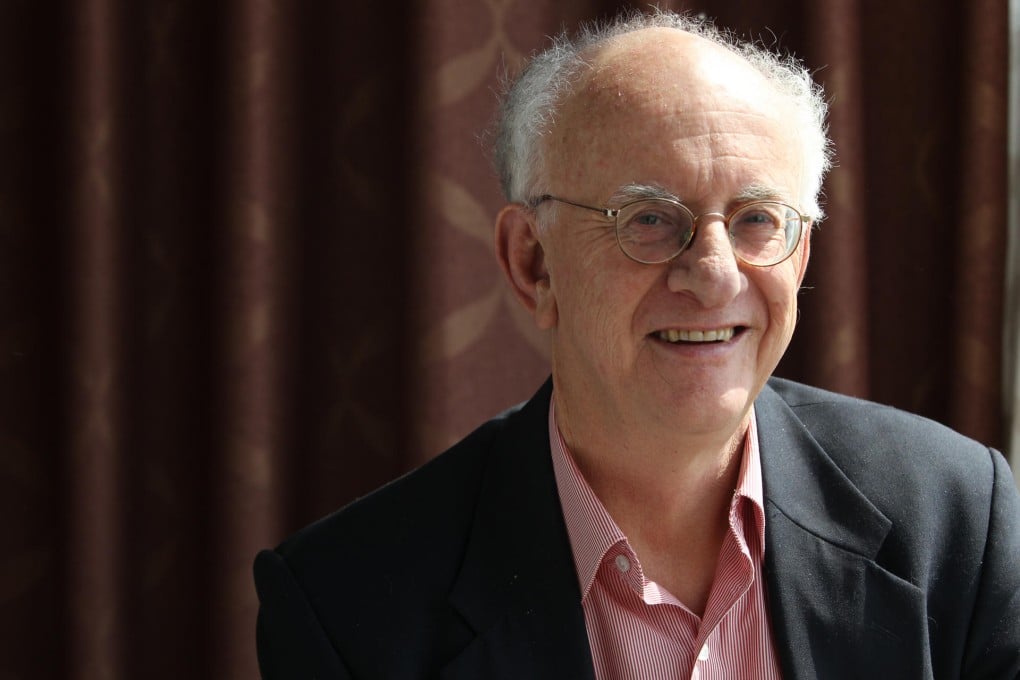My life: David Walker
The BHP Billiton Chair of Australian Studies at Peking University tells Xu Donghuan how his nation's relationship with Asia has evolved

I was born in 1945, in Adelaide. My father was a primary school teacher. He travelled around rural South Australia teaching in small schools. The family followed him. Because the schoolteacher only came into town for a short period, anything unusual happening with the schoolteacher and the family was noticed and commented upon. When I was very young, a camel was brought into our small country town. It was the first one I had ever seen. My father put me on it and took me off again, but I demanded to have a ride. So my father had to ride around the town with me on the camel. The family always remembered the embarrassment I caused them.
In 1958, the family went back to Adelaide. In 1967, I graduated (from Adelaide University) with a first class honours degree in history. I decided to do a PhD at the Australian National University, in Canberra, because I had been conscripted for service in the Vietnam war. I did not believe in the reasons given for going to war; we were told communism was coming down through Vietnam. China was regarded as the great bogeyman in the background. If Vietnam fell to communism, then Southeast Asia would fall and Australia would be made vulnerable. I got out of conscription on medical grounds a number of years later but I was doing the PhD knowing I was still required to go into the army at the end of that unless something happened. One of the things that happened was the change of government in Australia, which ended its involvement in the Vietnam war. But once I got into doing the PhD, I quite enjoyed it. For my doctoral thesis, I looked at the argument made by Australian writers that Australia was a culturally different place; not just part of the British world. It was a distinctive place with its own particular forms of language and its own mode of thought.
As I looked at the cultural identity question, I was aware that there was a kind of Asian theme sitting in the background. Growing up after the war, there was a lot of Asia-related themes running through my life. For example, one of my uncles served on the island of Ambon in the second world war and was executed in February 1942 by the Japanese. He was my father's younger brother, so in the family there was always concern about Japan and anxiety about what Japan might do. Ambon is in the Netherlands East Indies - now Indonesia. Australian troops were sent there. My uncle was in the air force. His small group was captured by the Japanese. They tried to escape but were caught and executed. It wasn't spoken about much but, growing up, I was always aware that something terrible had happened to my uncle and the Japanese had been involved. It was one of those influences that made you aware of the Asian background and, in this case, not a happy one, obviously.
When I was at the University of New South Wales, a friend and I decided to run a course on Australian perceptions of Asia. We thought our students didn't know enough about how Australia thought about Asia. (The book) Anxious Nation, which covers the period between 1850 and 1939, came out of that teaching and research. Australia was anxious because it was a long way from "home" - Britain and Europe, and because it was a big continent with a small population. So if China, with its 400 million people, decided it wanted another continent to expand into, Australia looked pretty tempting. Then, later on, Japan looked as if it could do something similar. So the idea of Australia being vulnerable to invasions from Asia was quite strong in the late 19th and early 20th centuries. Some people travelled to Asia and Eurasia but, by and large, the bulk of the population knew nothing about Asia, except it was very different and quite possibly hostile.
In 2004, when I started working on the second volume of the book, I was diagnosed as legally blind. That means, when I go to an eye specialist, I cannot see any of the letters on the eye chart with my glasses on. What it also means, in my case, is I have lost the centre of the field of vision in both eyes. I can only see things out of the side of my eyes. It's not a great condition, especially if you are a historian - because historians use a lot of primary sources: newspapers and old documents. But it has been reasonably stable in the last few years. My specialist says it's better to use the sight because if you send enough signals to the brain that you want to read and write, the brain will find ways of helping you to do it. If you said to the brain, "I have given up and I don't want to do it and I can't do it," then it won't happen.
If anything good is coming out of being legally blind, it's probably the family history book, Not Dark Yet, I've written. It is a reflection on life and its meaning, family and sight. A lot of it is not drawn from the archives or library but memory. Now I'm writing the second book of Anxious Nation. A lot of the second book, which is on the period from 1939 to 1972, is about the way Australia came to terms with Asia, (how it moved) beyond the old anxiety and got closer to establishing diplomatic and cultural relations and trading connections with Asia. It was the period in which Australians were trying to work out what they needed to do about their own image and how that needed to change.